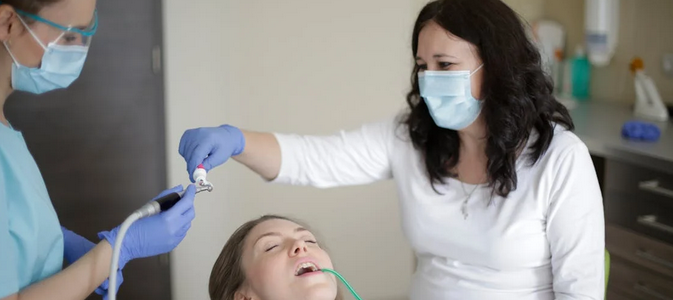Dental surgery is often necessary to resolve oral health concerns and improve overall well-being. However, the recovery process can have challenges like swelling, pain, or unexpected complications. When you ask the Dentist in Beaconsfield or other dentists in your area, they will emphasize the importance of proper aftercare during consultation. Ensuring a smooth recovery requires adequate care and attention to post-operative instructions. Here are essential health tips to help you navigate any issues following dental surgery while promoting a safe and effective healing process.
Follow Post-Surgery Instructions
Your dentist or oral surgeon will share detailed post-operative instructions tailored to your procedure. These may include guidelines on medication, diet, and oral hygiene. It is vital to adhere to these recommendations to lessen the risk of complications or delayed healing. Common advice includes avoiding strenuous activities for the first 24-48 hours and using prescribed medications as directed. If antibiotics are part of your treatment, complete the full course to prevent bacterial infections.
Manage Pain and Swelling
Pain and edema are typical following dental surgery but may be adequately treated. Pain medicines, whether over-the-counter or prescribed by your dentist, can help ease discomfort. Applying a cold compress to the outside of your cheek in 15-minute intervals can help reduce swelling during the first 48 hours. After the initial two days, switch to warm compresses to improve circulation and encourage healing. If pain persists or intensifies, consult your dentist immediately, as it could indicate an issue.
Maintain Proper Oral Hygiene
Keeping your mouth clean is crucial after surgery, but you must proceed cautiously to avoid disturbing surgical sites. Use a gentle, alcohol-free mouthwash or a saline solution to rinse your mouth. Brush your teeth carefully, avoid the surgical area, and follow your dentist’s advice on when to resume normal brushing and flossing. Avoid spitting forcefully or using straws, as these actions can dislodge blood clots, leading to a painful condition known as dry socket.

Recognize Signs of Infection
While mild discomfort is normal after dental surgery, specific symptoms could indicate infection. Look out for increased pain, persistent swelling, fever, or discharge from the surgical site. These symptoms warrant immediate attention from your dentist or oral surgeon. Early detection and treatment of infections can prevent more severe complications, so never hesitate to seek professional advice if you feel something is amiss.
Rest and Allow Time to Heal
Rest is an often overlooked yet essential aspect of recovery. Avoid rigorous physical activities that could increase blood flow to the surgical area, potentially leading to bleeding or discomfort. Keep your head elevated while sleeping, using an extra pillow to reduce swelling and encourage healing. Pushing yourself too hard too soon can prolong recovery and worsen post-surgical issues, so prioritize adequate rest.
Seek Professional Help When Needed
Sometimes, even with the best care, complications may arise. Persistent pain, excessive bleeding, or difficulty opening your mouth are signs that you should contact your dentist immediately. Professional intervention can address these issues promptly and prevent further complications.
Facing issues after dental surgery can be challenging, but following proper health tips can significantly ease recovery. You can guarantee a smooth and successful recovery by adhering to post-operative instructions, managing discomfort, maintaining excellent oral hygiene, and knowing when to seek professional help. Always communicate openly with your dentist to address concerns promptly and promote optimal healing.


